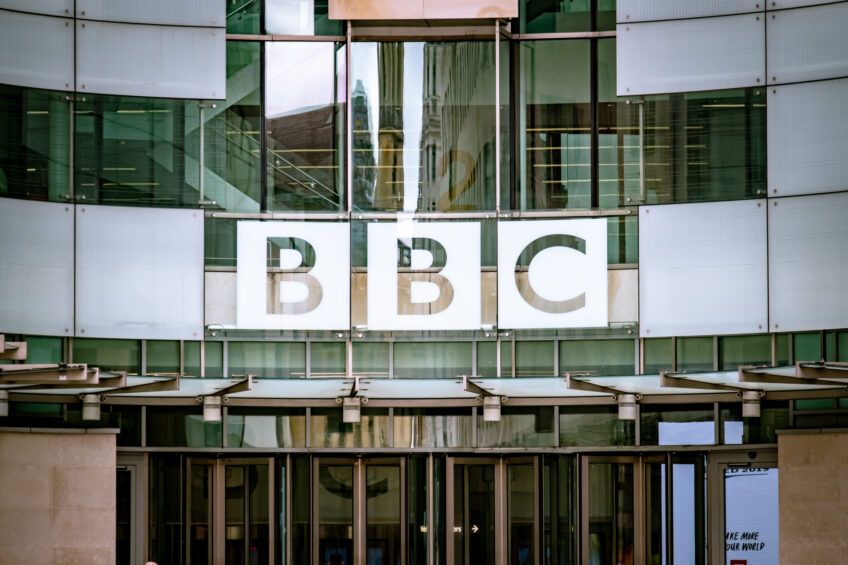BBC Scandal – Defamation of Character & Right to Privacy
UK Recommended Lawyer & media specialist, Nicholas Taylor explores why the media have not identified the BBC’s suspended TV presenter.
Last week the BBC confirmed that a high profile BBC TV presenter had been suspended due to accusations that they had paid over £35,000 for explicit photos of a minor.
It has been reported that the male presenter initially requested images in 2020 when the youth was just 17 years old.
The story was first brought to the public’s attention by The Sun newspaper, who had been contacted by the family of the young person. The newspaper reported that the family had reached out after becoming frustrated by the BBC’s handling of the matter. According to The Sun, the family initially reported the incident to the BBC in May 2023. The mother of the young person claimed that there had been little correspondence regarding her complaint and the presenter remained on air.
Despite the severity of the accusations made, the media have not named the presenter in question.
This led to many people taking to social media platforms such as Twitter to name and shame a range of high profile presenters who are known to work with the BBC.
In response, the BBC director general, Tim Davie, informed staff that, “individuals are entitled to a reasonable expectation of privacy” while investigations take place.
Why does the suspended presenter remain anonymous?
It is understood that there are currently no court proceedings restricting publication of the individual’s name. However, there are legal implications of linking a person to serious allegations, which have prevented mainstream media outlets from sharing the identity of the accused in public.
Defamation of Character
One of the main issues being considered by the media is the risk of a defamation claim against anyone publishing the identity of the individual at this stage in light of the clear likelihood of it causing serious harm to his reputation. It is actionable if a defamatory statement about an individual is made without evidence of it being true, but it can be difficult to provide the facts to support a statement. It is essential therefore to exercise caution when making a statement about a person in the public domain.
Currently, most of the details that have been shared regarding the presenter in question have come from The Sun newspaper. The quotes that were provided by the tabloid came from the mother of the young person.
On the 10th July, media outlets reported that the lawyer representing the young person had contradicted The Sun’s article. The lawyer shared a statement challenging the mother’s accusations and claimed that The Sun’s report was untrue.
The lawyer said: “For the avoidance of doubt, nothing inappropriate or unlawful has taken place between our client and the BBC personality and the allegations reported in the Sun newspaper are rubbish.”
The Sun newspaper continues to stand by their report, claiming that they have shared a story in relation to two concerned parents about the welfare of their child, which was not acted upon by the BBC. Furthermore, the newspaper confirms that they have seen evidence that supports the claims of the parents.
In addition to these allegations, the Daily Mail thickened the plot by reporting that a second young person has also made claims against the suspended BBC presenter and further fresh allegations have been made regarding the individual breaking Covid lock down rules.
Privacy
The second issue relates to the risk of infringing the individual’s rights to privacy in naming him at this stage. These rights are protected by legislation and established under Article 8 of the Human Rights Act.
The British press have been historically reckless in infringing the rights to privacy of individuals without establishing the facts first, as was seen by the case of the former Bristol schoolteacher Christopher Jeffries. While investigations took place, Christopher was wrongly arrested in connection to the murder of his tenant and vilified by the media. Many of the articles in relation to Christopher remain accessible on Google today.
Cliff Richard also became a victim of the media’s tactics when the BBC shared footage of his home being raided by the police in 2018. Cliff Richard was never charged and took legal action against the BBC, which resulted in substantial damages being awarded to him. During the case, the judge ruled that the broadcaster had wrongfully invaded Cliff’s privacy by reporting on the story while the matter was still under investigation by the police.
Within the last week, the BBC have confirmed that the case has been presented to the police for further investigation. If the police do find evidence against the presenter, this could lead to his identity being shared.
The severity of these claims has captured the attention of the public, with many being disappointed with the BBC’s approach in not naming the individual.
If you require further information regarding defamation of character and your rights to privacy, or any other dispute related enquiry, please contact Media Partner, Nicholas Taylor at: Nicholas.taylor@healys.old-website.shout-loud.co.uk.
For more legal updates, please visit Healys LLP’s website.

